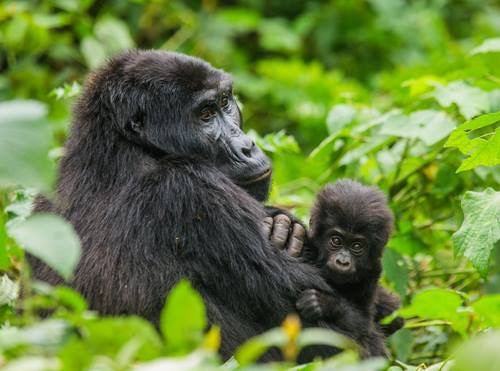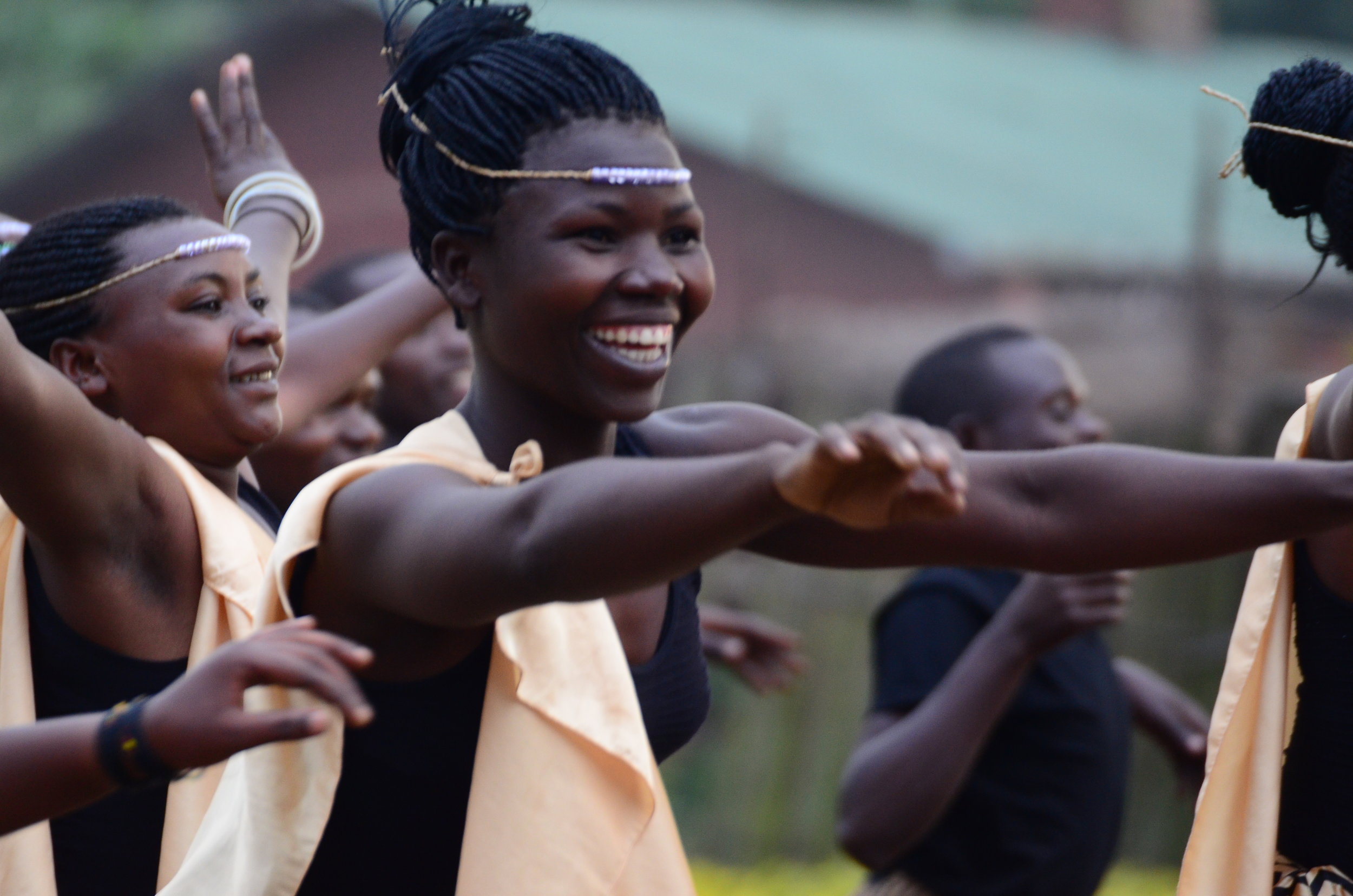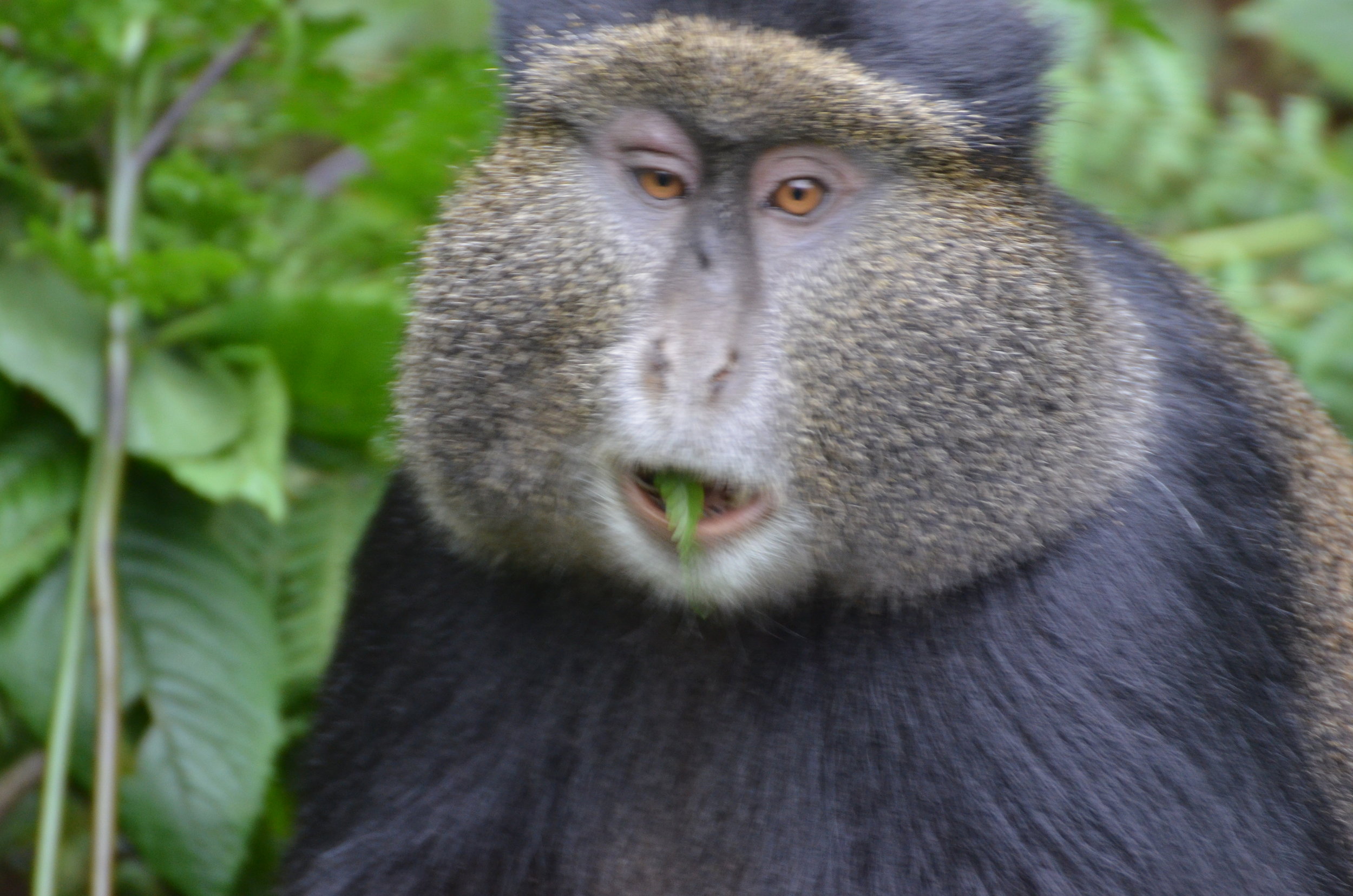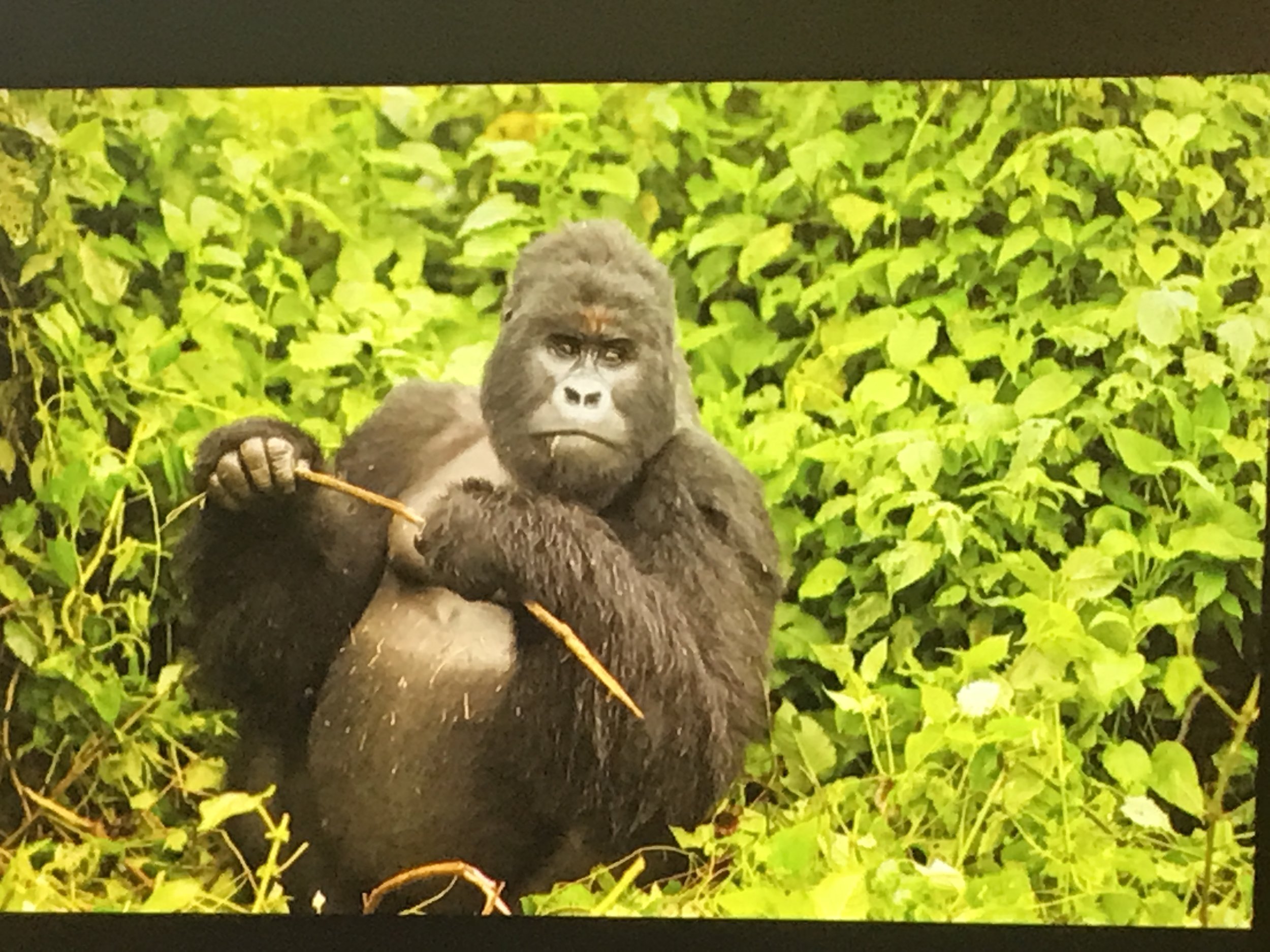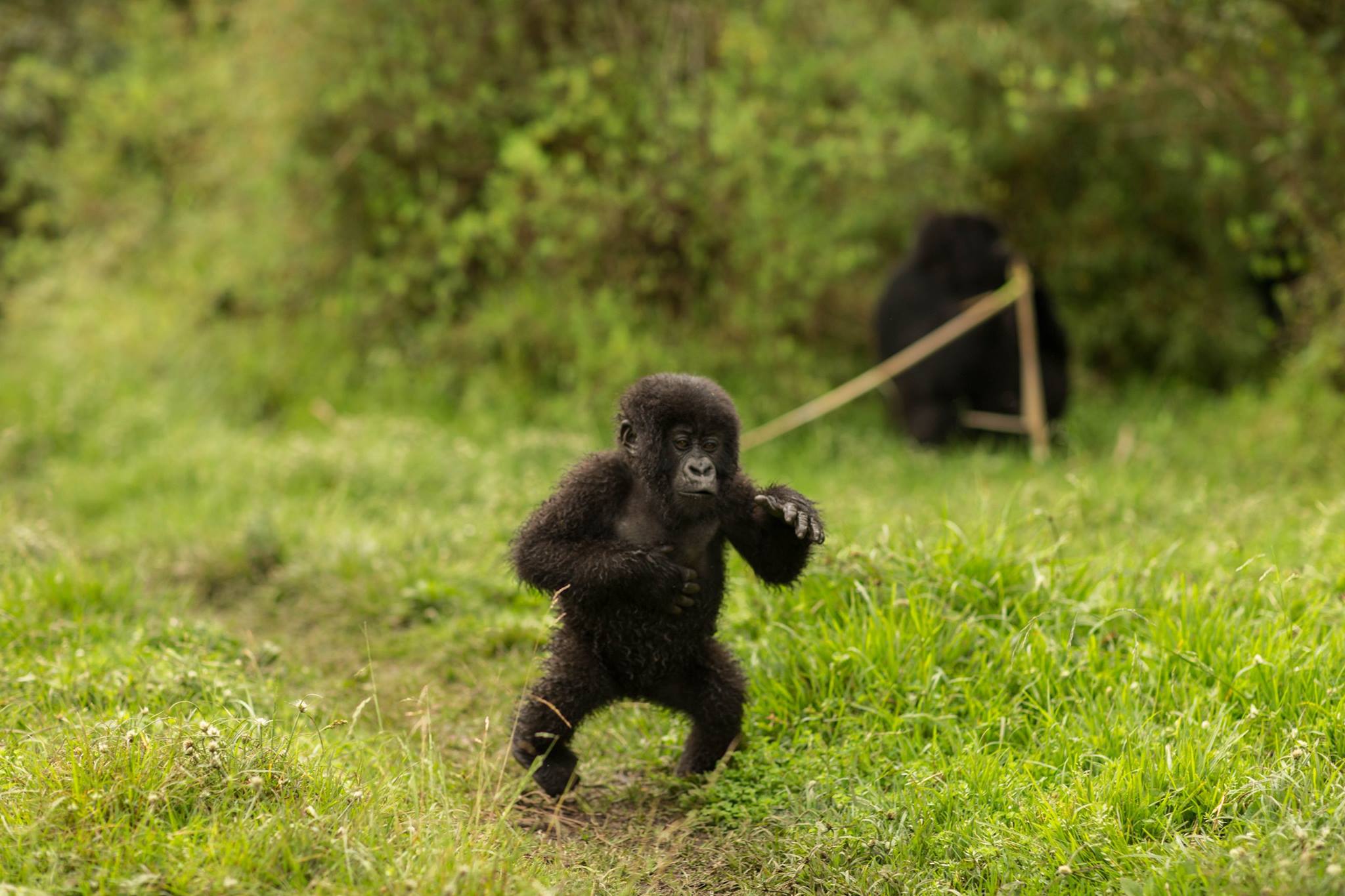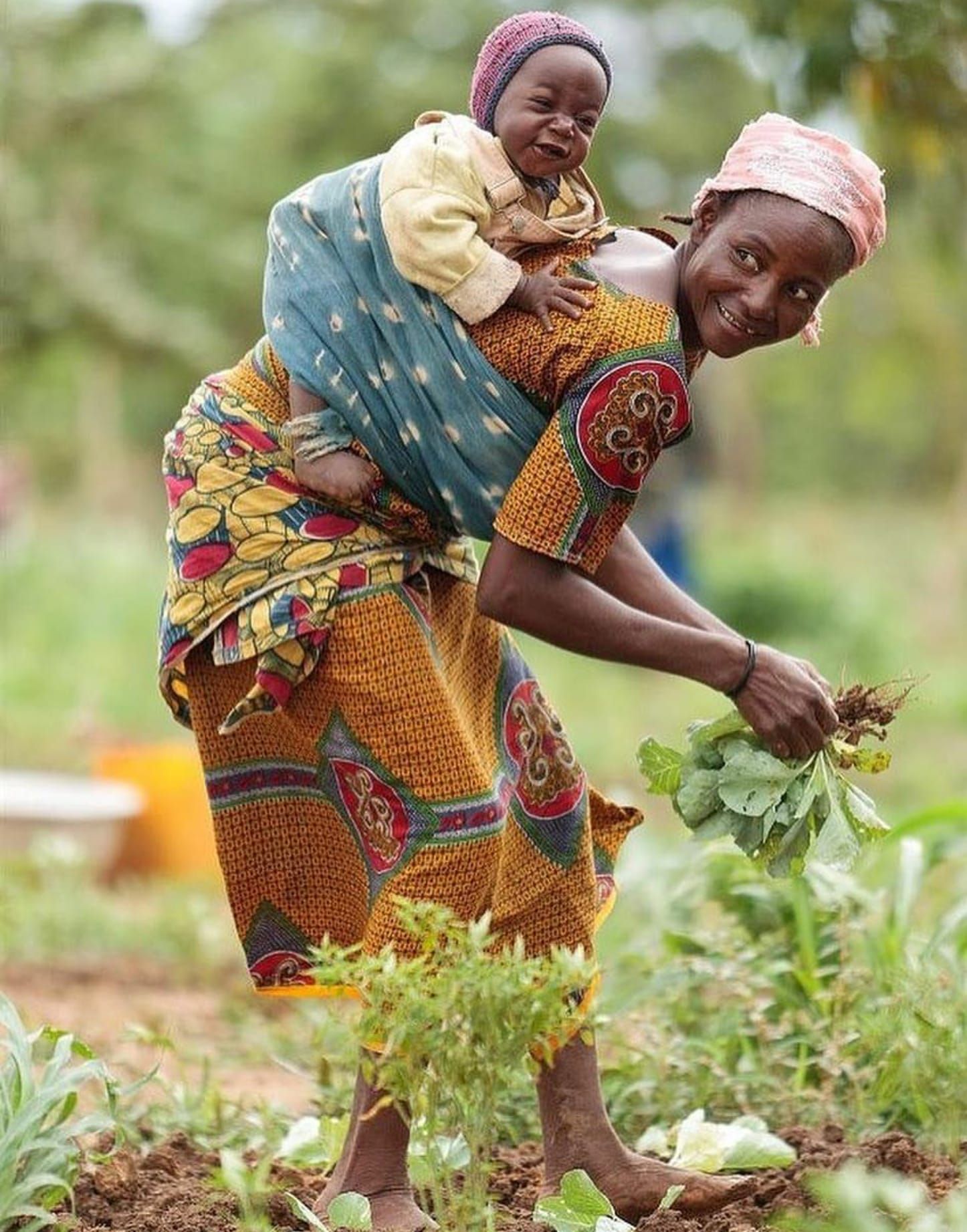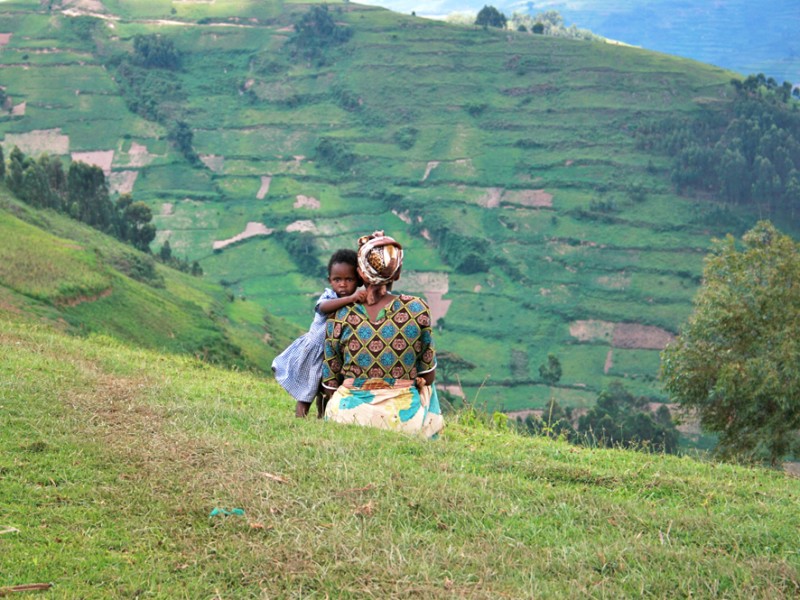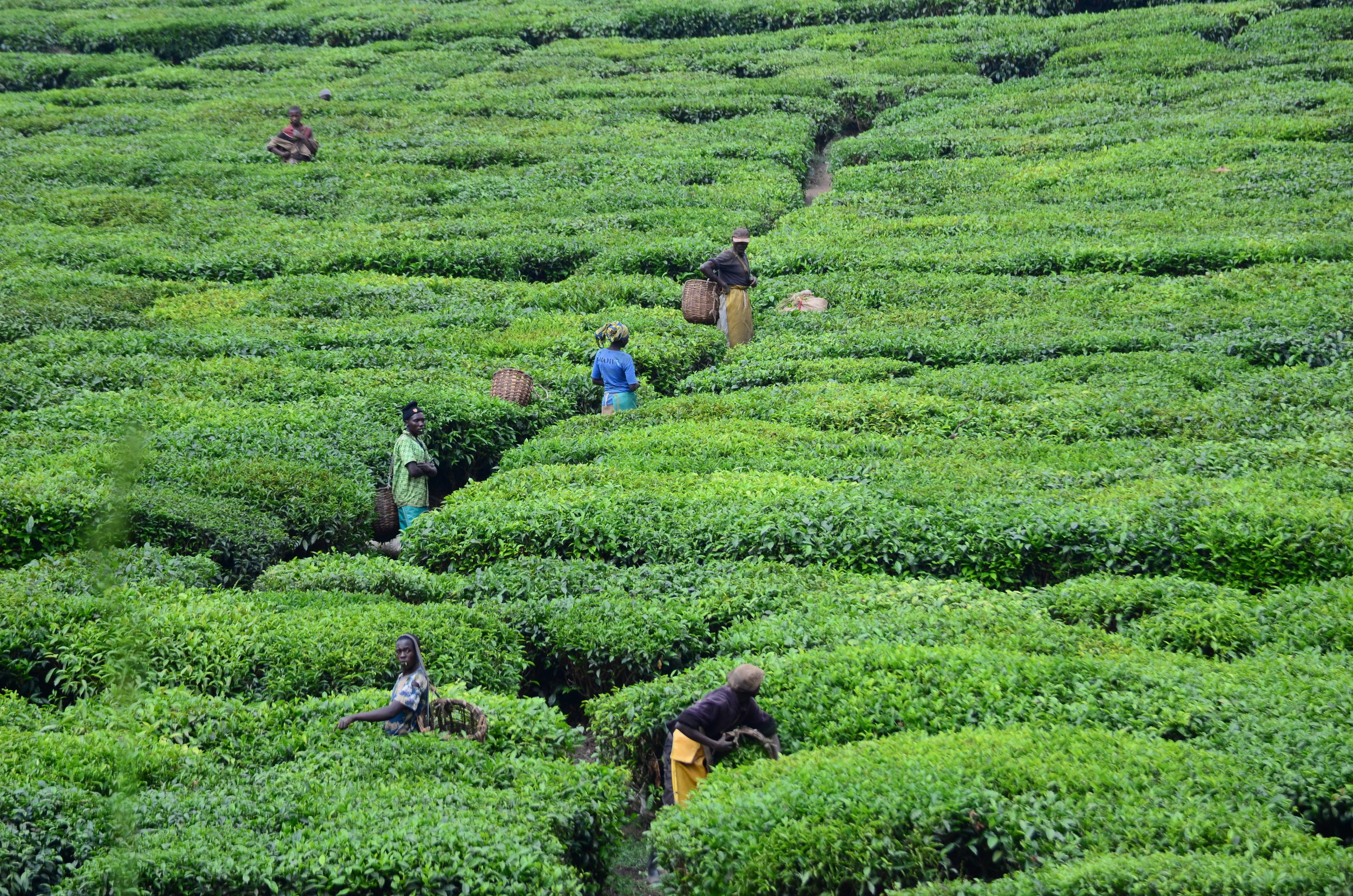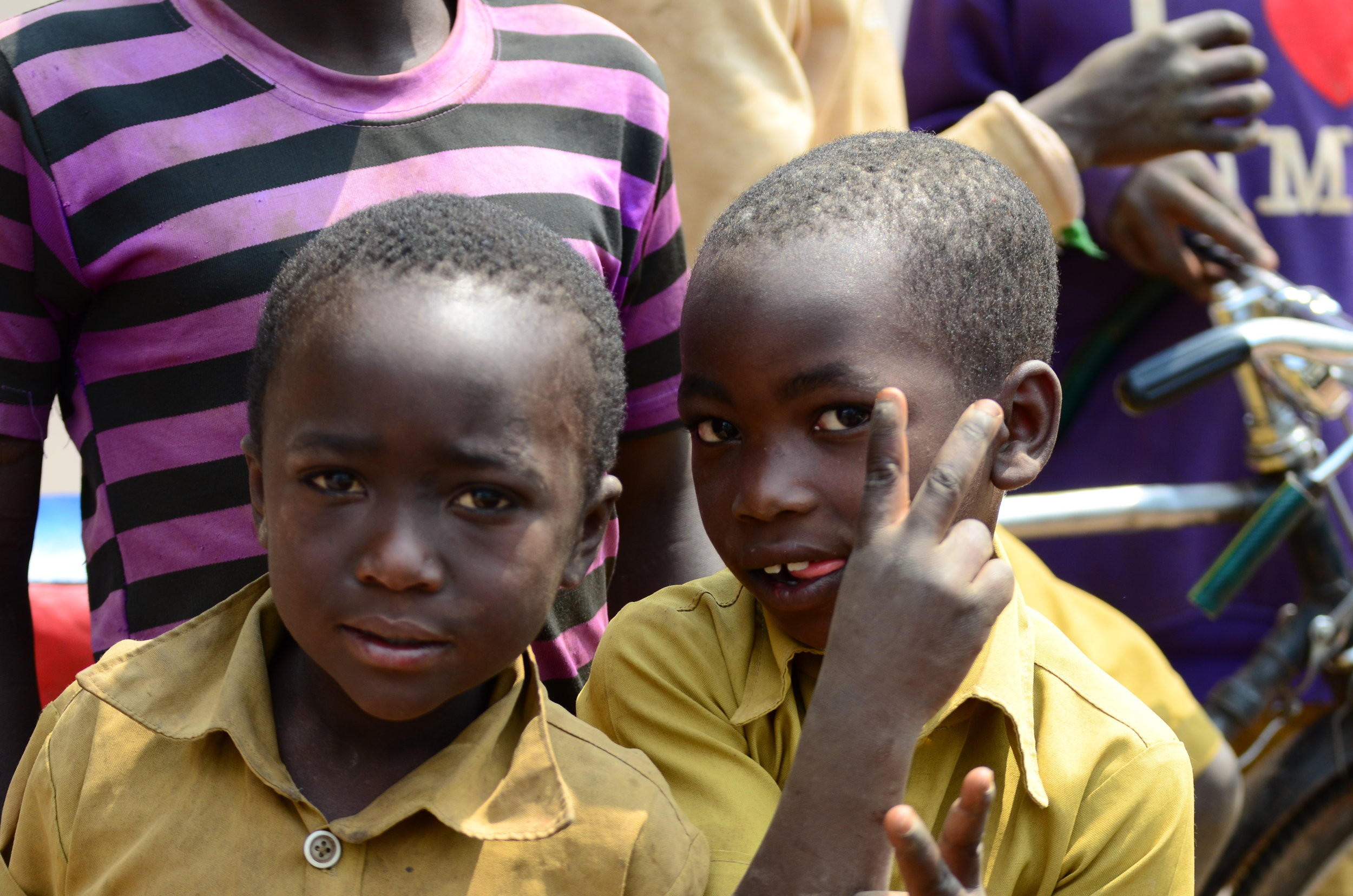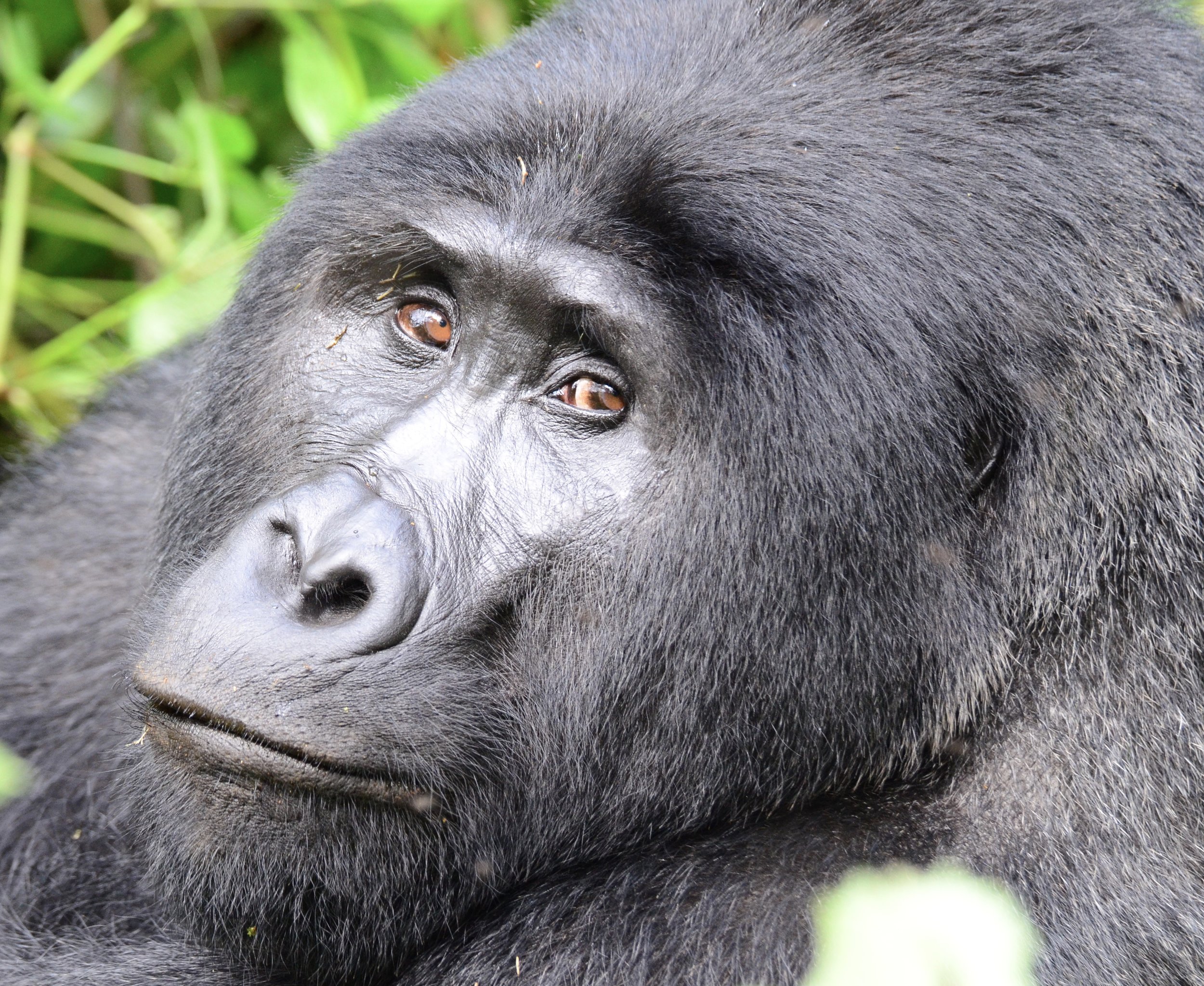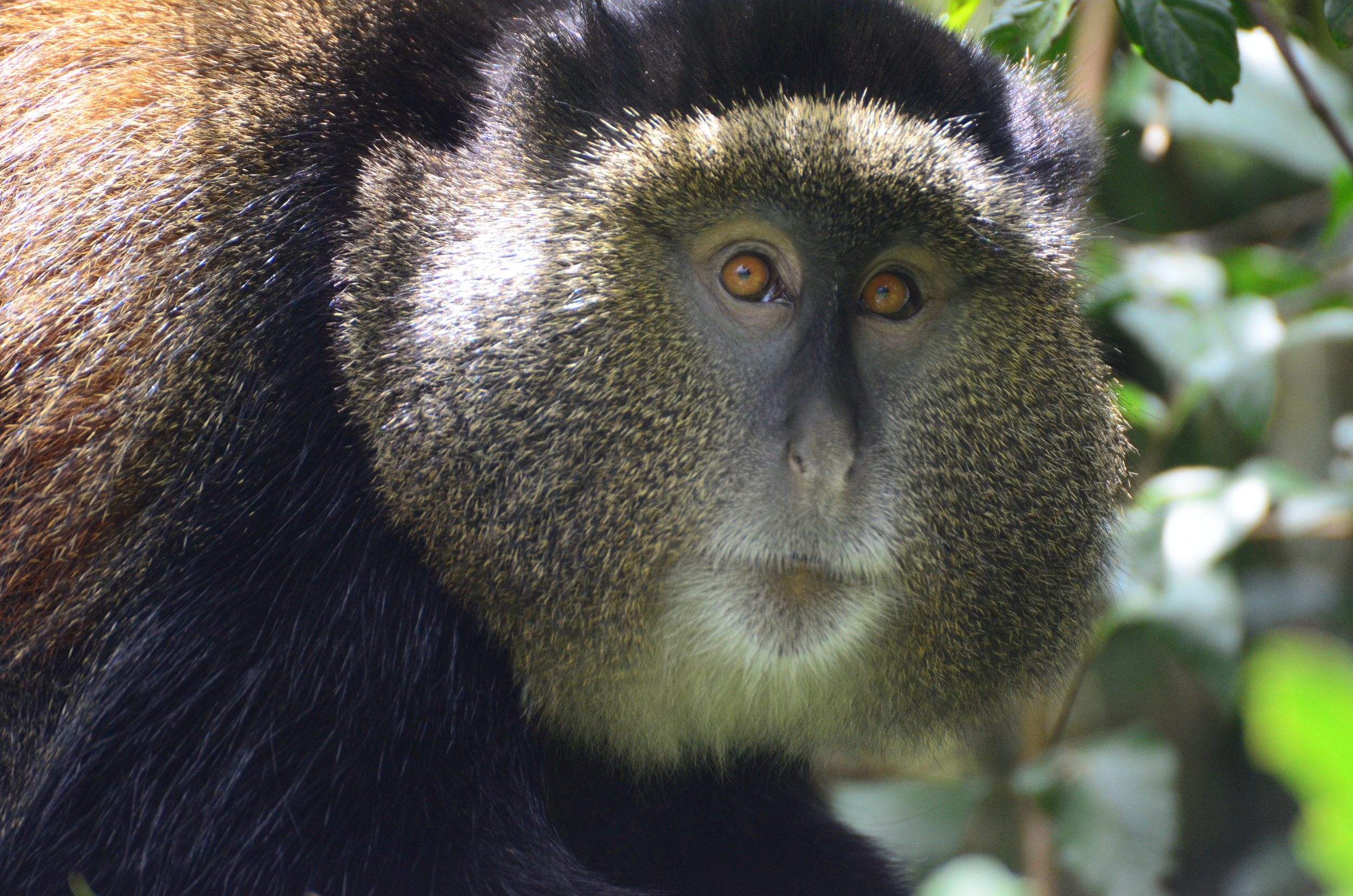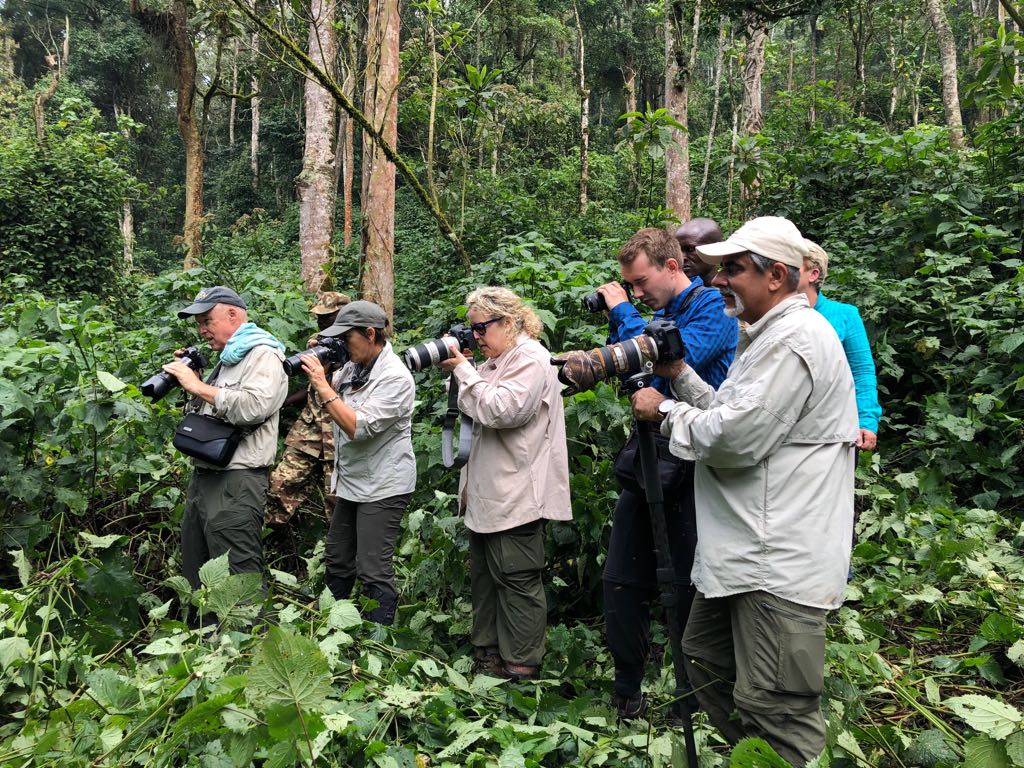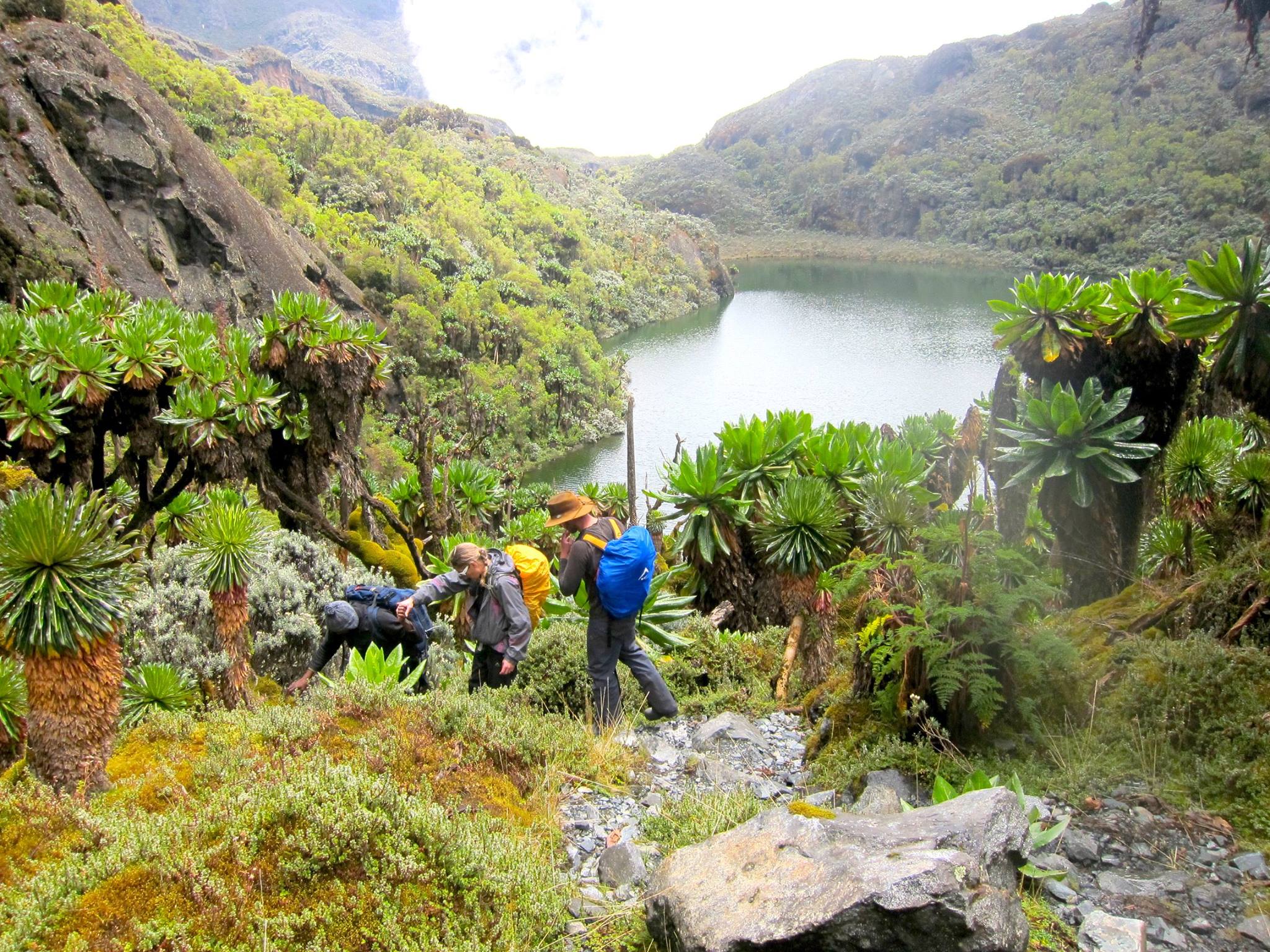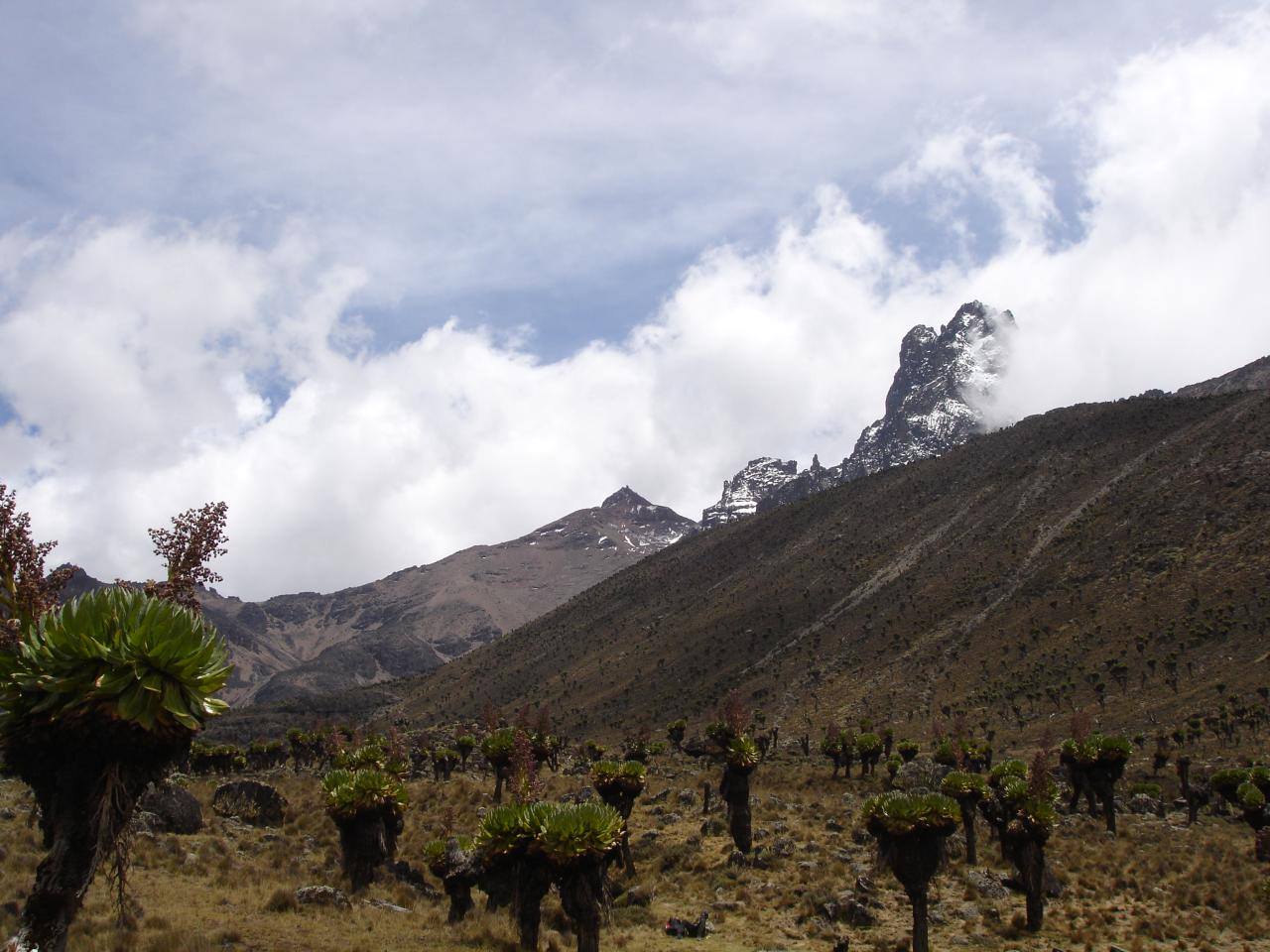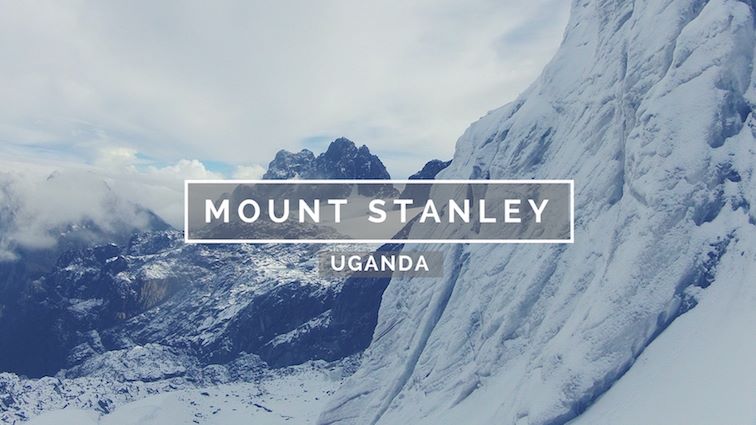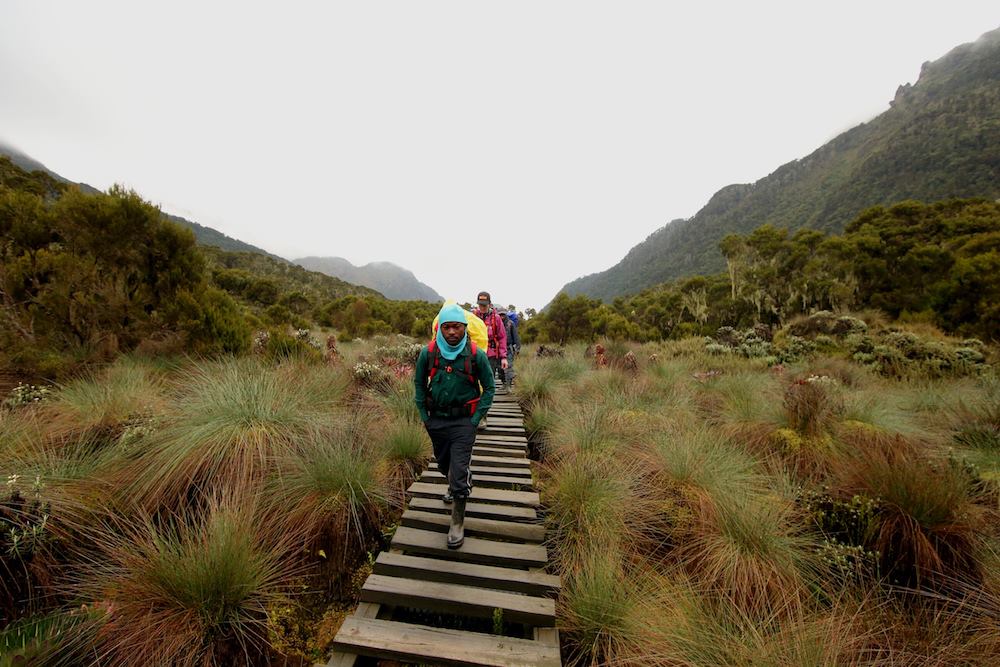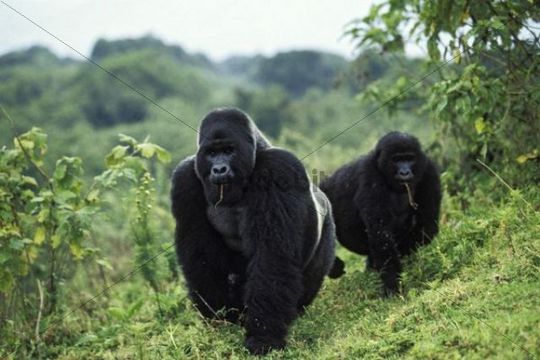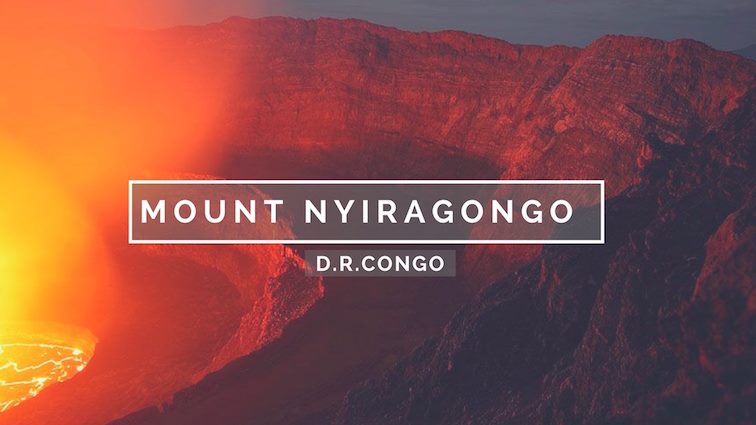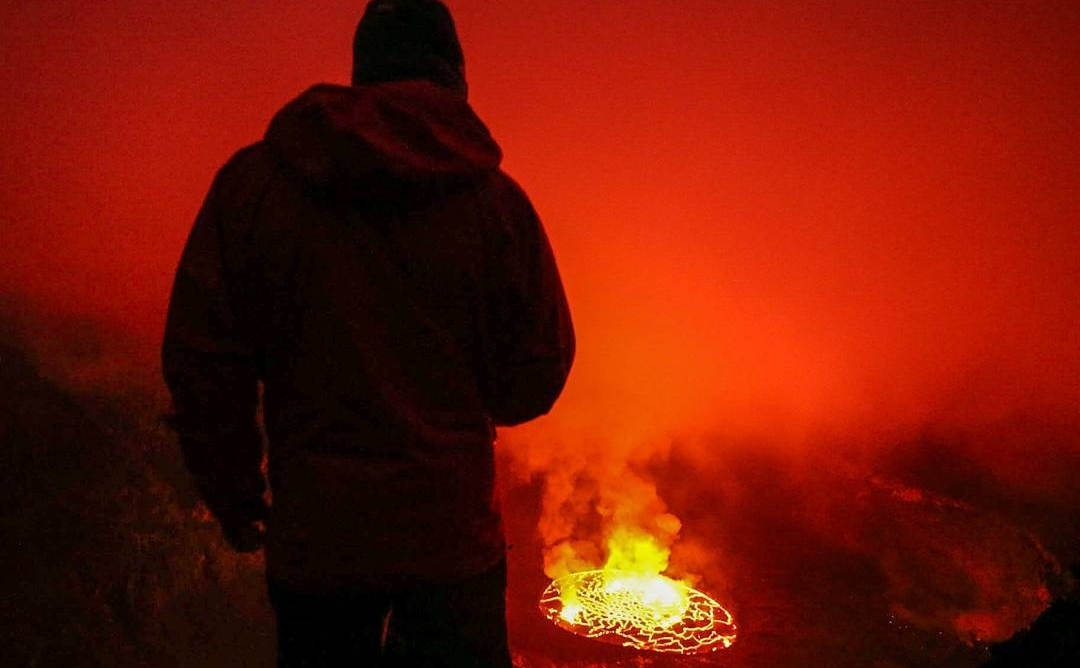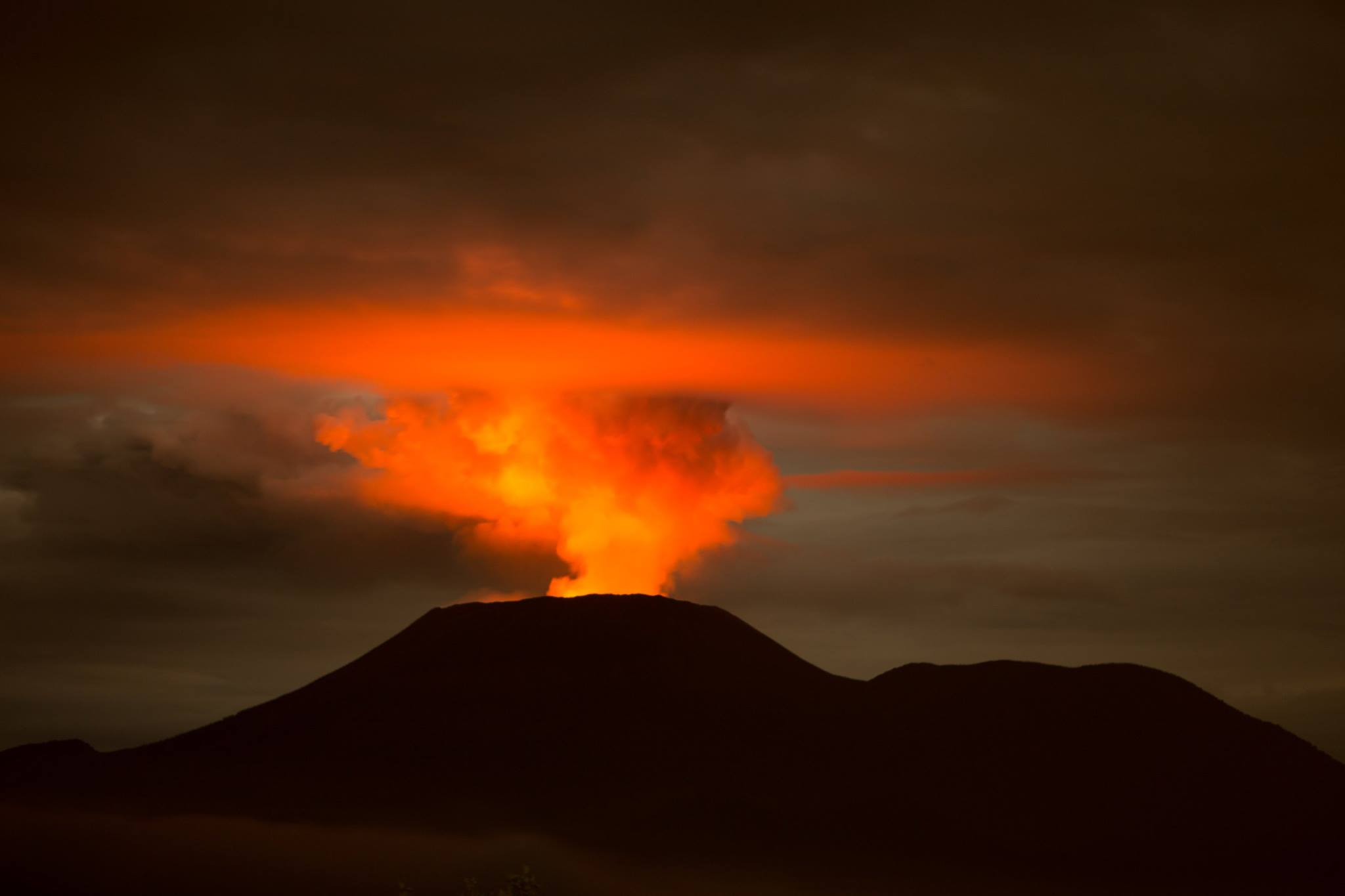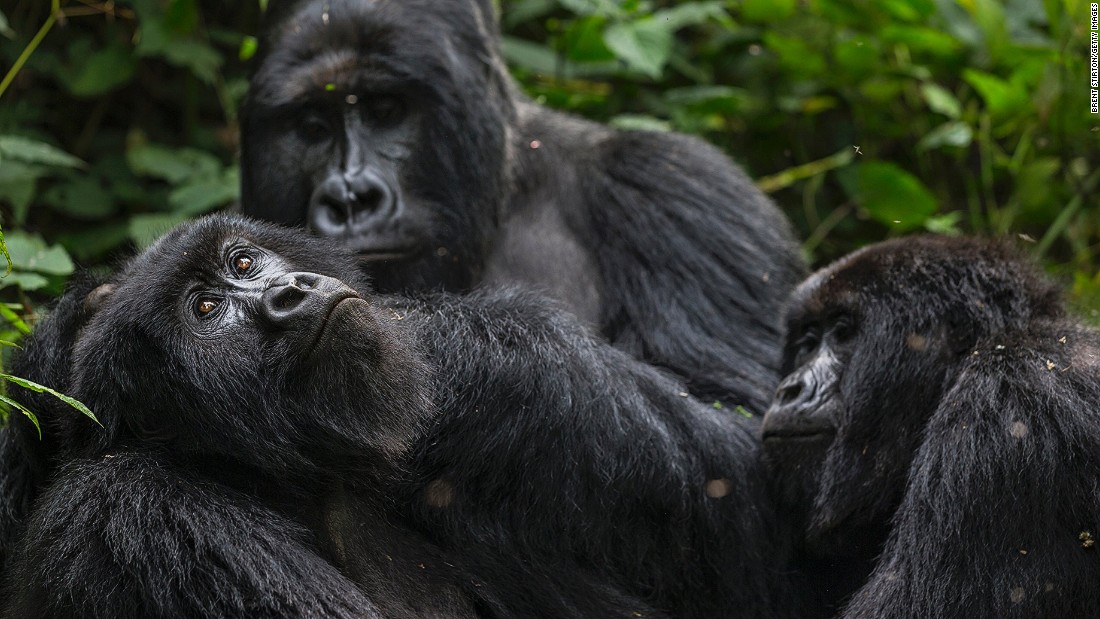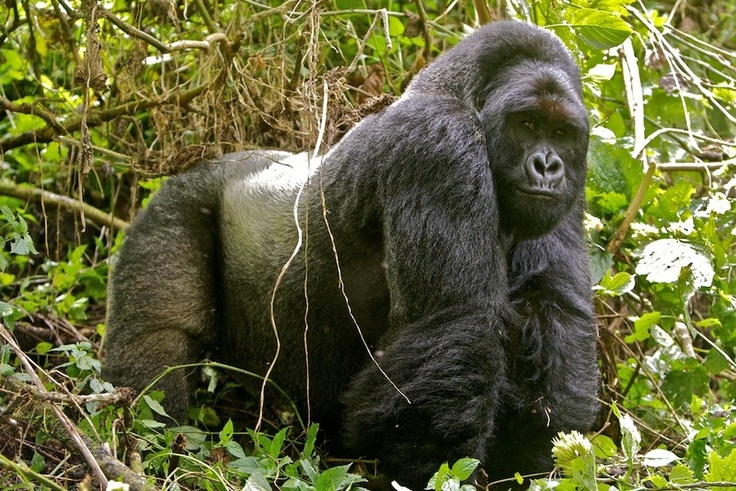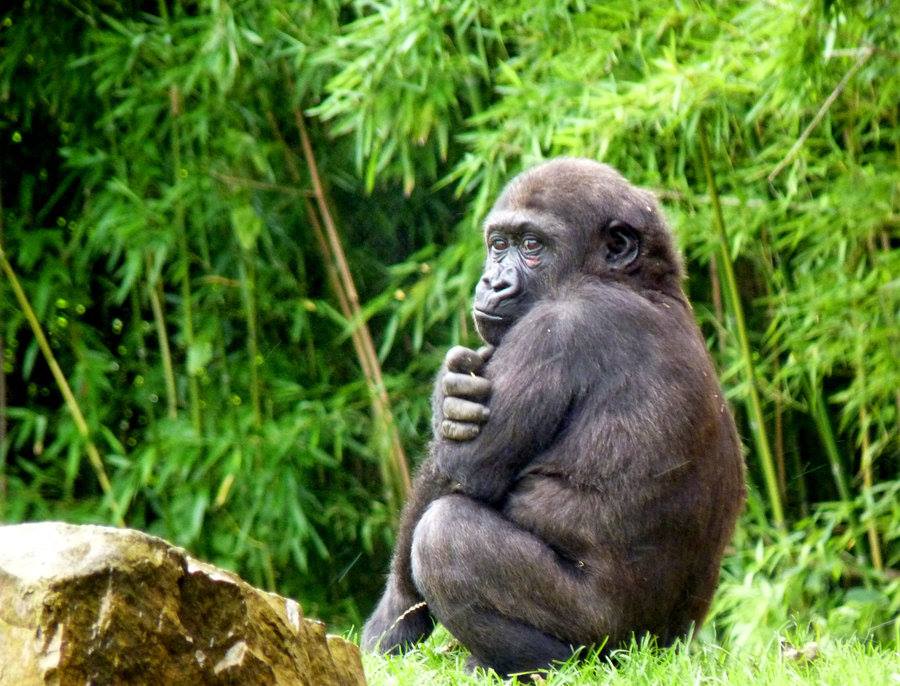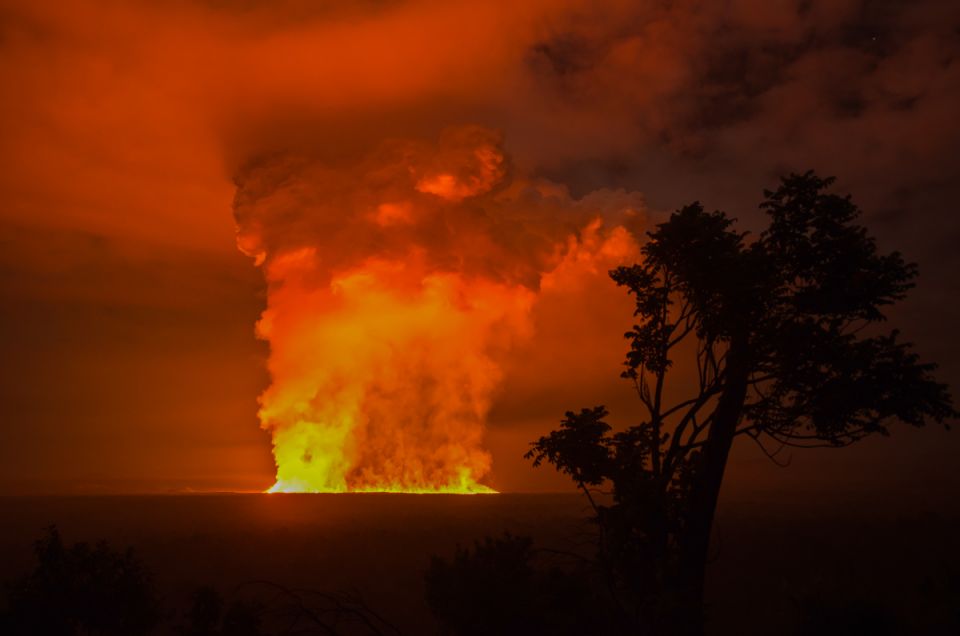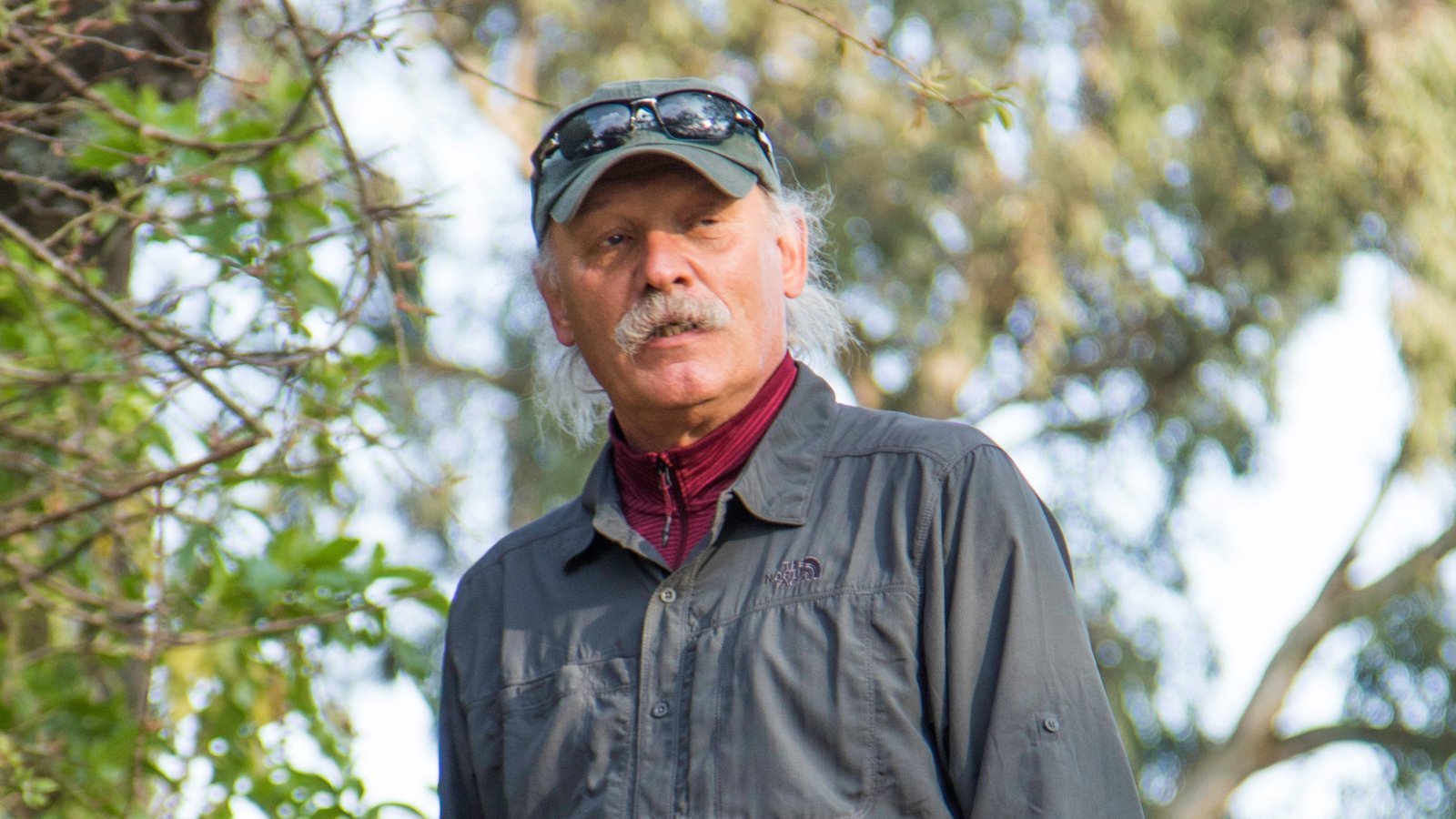
Gorilla Trekking: See the mighty Silverbacks of East Africa
Gorilla Trekking is an amazing experience as you get closer than ever before to this amazing species of animal. Our expert guides will take you on a journey to see the mighty Silver backs of East Africa, whether you've chosen to include Gorilla Trekking as part of a bigger safari or if you've opted to make it your whole holiday.
There are only three options with regards to tracking the rare and endangered mountain gorillas. They exist only in Uganda, Rwanda and the Democratic Republic of Congo.
In a nutshell, Rwanda is for those with little time, Uganda offers cheaper permits, but requires a greater time commitment and the Democratic Republic of Congo has the cheapest permit fees.
Destinations
Rwanda
On the surface, Rwanda seems the best bet for mountain gorilla trekking. Rwanda was the leader in the movement to protect the gorillas; this is where Dian Fossey, the American zoologist studied and conducted her advocacy work. Rwanda has been the most popular country of the three for tracking the mountain gorillas.
The biggest advantage that Rwanda has over the other two options is the short distance one has to travel from the airport. So, if you are looking to come to one of these countries just for gorilla trekking, then Rwanda is the answer. The travel time from the airport to the park gates is just over two hours and many people come just for the day. There are a number of visitors to Rwanda that have been on safari in Tanzania or Kenya and they want to take advantage of the proximity of the gorillas to these other East African countries. There are direct flights from Nairobi in Kenya and Mount Kilimanjaro daily to Kigali; this enables some to arrive early in the morning in Kigali, travel to Volcanoes National Park for a gorilla trek and return to Kigali airport the same day.
The permit fees are the highest in Rwanda at US$1500.00, but if time is an issue, then this is definitely the best option.
Uganda
Uganda’s permit fees to track the mountain gorillas are US$600 and in the off-season, the fees can be as low as US$450; although with the reduced fees comes the rains and muddy conditions. Uganda also has the greatest number of gorillas by far. The biggest disadvantage that travellers face when going to Uganda is the distance they have to travel from the airport to see the gorillas. It takes a full day of driving or a couple of hours in a small plane to a local airport. If time is not an issue, then Uganda is by far the best option, as there are so many other attractions in Uganda, which makes it the most interesting of all the East African countries to visit.
Uganda has 10 national parks, the most popular being Queen Elizabeth National Park. Here, there are dozens of large mammals to see including the famous tree hugging lions, hippos galore, as well as elephants, gazelle and hundreds of bird species.
In addition, there is the famous Murchison Falls with the largest colony of hippos in Africa. There is Kadepo National Park, a wilderness park offering unrivalled natural beauty and cultural opportunities with the Karamajong, who live traditionally. Uganda has boat cruises, mountain climbing and hiking, bungee jumping, white-water rafting, a rhino sanctuary, and chimpanzee encounters, to list just a few activities.
The greatest of its assets is the Ugandan people, who are considered the most welcoming and friendly on the African continent. So, if you have a week or two, there is no contest; Uganda is the best choice.
The Democratic Republic of Congo
The Democratic Republic of Congo offers the cheapest permit fees to see the Gorillas, at US$450. The DRC is the most adventurous of the three as the physical challenges in reaching the gorilla families are the greatest. The Virunga National Park, where the gorillas live is reached by most travellers from Kigali International Airport, which involves crossing Rwanda followed by the Rwanda/DRC border. The trip is a full day. There are private planes to hire should a chartered flight be an option, but it is expensive.
Another challenge to be considered is the lack of security in the Eastern portion of the DRC, which affects the safety of the travellers both en route to the park and within the park itself. Many Western governments do not recommend travelling to the DRC unless it is essential; for most, this is a big deterrent to seeing the mountain gorillas in the DRC, especially as they have the fewest number of mountain gorillas of the three countries. ( 480 mountain gorillas)
The cost of gorilla trekking in Rwanda, Uganda and Congo differs, but the three countries are the same in terms of many specifics, most notably the satisfaction of seeing and photographing the gorillas themselves. The park rangers in all three countries require trackers to be briefed on the do’s and don’ts of gorilla tracking and they are all quite insistent on visitors obeying the rules and regulations. These gorillas move about the various forests within the Virunga mountain range and have been known to cross borders from time to time. The gorillas do not require visas, as the human travellers do.
In terms of accommodation, all three countries have a variety of options; luxury lodges, first class hotels and moderate guesthouses are available throughout the region. The weather conditions are the same in the mountainous areas where the gorillas are found. The permit fees to see the gorillas are used in all three countries to help protect the gorillas and their environment. It seems that despite the great expense to see these endangered primates, travellers are not in short numbers; gorilla trekking is very popular and one needs to book permits months in advance in most cases.
When to go?
It is important to consider the seasons and timing when planning your gorilla safari to Africa. Gorillas can be tracked all year round, however, the dry season (June to August and December to February) is the best time for trekking.
Trekkers are reminded that there may be rain showers no matter what time of the year, irrespective of the season, since gorillas live in dense, tropical rainforests.
Why Track Gorillas?
Trek to see the last mountain gorillas - only 1,000 remain in the wild.
Tourism supports conservation efforts directly, making mountain gorillas the only primate with increasing populations on earth.
Experience & Preference
What you want out of your gorilla trek can influence your decision of where to go. For the adventure lover, Uganda is the best choice as Bwindi features a very rugged landscape with steep hills and narrow valleys, all covered by dense Afromontane forest which makes the gorilla trekking even more of an adventure. In addition, the treks in Uganda are usually longer compared to Rwanda and DR Congo, so you do receive value for money.
Photography
The dense forests of Bwindi can make taking photos difficult as the gorillas are usually found in the depths of the forest where there is little sunlight filtering through the jungle canopy. This is in contrast to the short vegetation of Rwanda’s Volcanoes National Park where the gorillas can easily be seen out in the open.
Accommodation
Uganda takes the lead for the widest range of accommodation options, and mainly caters for those looking for a comfort to mid-range lodging. However, look to Rwanda when considering high-range, luxury accommodation options.There are many incredible places to stay in Rwanda. Here are some of our favourites, handpicked by our travel designers:
The spectacular Bisate Lodge with its panoramic views
One&Only Nyungwe House set in its own lush tea plantation
The spacious lake-side Magashi Camp
Gorilla’s Nest set in Virunga’s eucalyptus treetops
The luxuriously comfortable Virunga Lodge
See the best of Rwanda on a private safari with Urth Expedition Limited. Our Rwandan experts, with decades of experience between them, will create a memorable journey to witness some of the most incredible landscapes and wildlife spectacles on the planet.
Providing you with excellent safari guides, exquisite fine dining and the best accommodation in one of the most sought after safari destinations in the world, we can can plan the perfect trip to Rwanda for you. With your interests in mind, we’ll select the best safari camps and lodges to avoid the crowds and enjoy the most astounding wildlife encounters.
Get inspired and call one of our expert Rwanda Travel Designers to start planning the journey of a lifetime.
Accessibility
Rwanda
The Rwanda gorilla destination of Volcanoes National Park is the easiest to access of all the gorilla parks as it is only a two-hour drive from the capital city of Kigali;
uganda
In Uganda, Bwindi Impenetrable National Park can be accessed from Kampala/Entebbe (there are daily flights from Entebbe, but driving will take about 8-10 hours). It can also be reached via Kigali, if you are okay with a long 10-hour drive.
dr congo
And the DR Congo’s Virunga National Park* is about around a four to five-hour drive from Kigali.
Virunga National Park is closed to tourists until further notice, while the authorities improve on security measures.
Sample Trek Itineraries
4-day Uganda Gorilla Trek
starting at $ 2,850.00/person*
4-day rwanda Gorilla Trek
starting at $4,500.00/person*
Book your trip today!
Courtesy of Travulous
In the Foot steps of Dian Fossey
“Little did I know then that by setting up two small tents in the wilderness of the Virungas I had launched the beginnings of what was to become an internationally renowned research station eventually to be utilized by students and scientists”
— Dian Fossey, 'Gorillas in the Mist'
Highlights
Join 2 gorilla treks, and hear stories from your Tour Leader who worked with Dian at Karisoke
Visit Dian's gravesite, including Digit's, her favourite mountain gorilla
Hike to Dian's original Karisoke Research Camp, located between Mt. Karisimbi and Mt. Bisoke
Join our exclusive ‘Meet AWF & Dian Fossey’s Former Colleagues’ event
Courtesy of Travulous
Itinerary
DAY 1:
Volcanoes National Park
Meet your guide in Kigali, for an optional visit of the Kigali Genocide Memorial Center before departing on a scenic drive through Rwanda's beautiful terraced hillsides to Musanze, the base for gorilla tracking.
After checking in at your accommodation, enjoy lunch and spend the remainder of the afternoon enjoying your accommodation’s facilities.
In the evening it’s time to join an exclusive open-air dinner event, ‘Meet Dian Fossey’s Former Colleagues’, to learn more about conservation in Rwanda, from past to present. Listen to after-dinner talks by Craig Sholley, who lived and worked with Dian Fossey at the original Karisoke Research Center, in addition to a renowned mountain gorilla conservation organisation.
Meals: Lunch and dinner included, breakfast at own arrangement.
Overnight: Sabyinyo Silverback Loge (or similar)
Kigali pre-tour accommodation options: Enquire for details
DAY 2:
Volcanoes National Park
After an early breakfast, we transfer to Volcanoes National Park headquarters for a briefing by park staff, before meeting the rangers who will guide you to your assigned gorilla family. With 12 fully habituated gorilla families living in the Volcanoes National Park, only 96 gorilla permits are issued to tourists per day. Advance booking is essential.
Gorilla tracking does not present a serious physical challenge to a reasonably fit adult, regardless of age, although the altitude and terrain can sometimes be demanding. Gorilla tracking can take from 2 to 6 hours, with the guides stopping frequently for people to rest.
After the trek, return to your accommodation for lunch and spend the rest of your afternoon at leisure, or take an optional tour of the new Ellen DeGeneres Campus of the Dian Fossey Gorilla Fund.
Meals: Breakfast, lunch and dinner included.
Overnight: Sabyinyo Silverback Lodge (or similar)
DAY 3:
Volcanoes National Park
After breakfast, we hike to Dian Fossey's original Karisoke Research Camp in Volcanoes National Park, located between two volcanoes, Mt. Karisimbi and Mt. Bisoke.
Dian's original camp set-up consisted of a tent, converted over time to small cabins. Today the cabins lie in ruins, but by listening to the stories of your Tour Leader Craig Sholley, you will gain a good understanding for what it must have been like for Dian all those years ago, when setting up camp to study and protect the endangered mountain gorillas. You will also see Dian's grave, and that of her favourite gorilla Digit.
After the trek, return to your accommodation for lunch and spend the rest of your afternoon at leisure.
Meals: Breakfast, lunch and dinner included.
Overnight: Sabyinyo Silverback Lodge (or similar)
DAY 4:
Volcanoes National Park
Today you have the opportunity to enjoy a second gorilla trek.
Alternatively, go in search of the golden monkeys who are endemic to the high-altitude forests of Volcanoes National Park. These playful and inquisitive monkeys are fun to watch as they leap through the bamboo or wrestle and run across the forest floor. A maximum of 32 golden monkey permits are issued per day.
In the afternoon we depart for Kigali with a pack lunch enroute. Upon arrival at your accommodation, it’s time to freshen up before joining a farewell dinner with local historian, scholar and genocide survivor, Rose-Marie Mukarutabana, to learn more about the pre-colonial history, culture and customs of Rwanda, dating back to the 14th century.
Meals: Breakfast, lunch and dinner included.
Overnight: Mille Collines (or similar)
DAY 5:
Departure
Enjoy breakfast at your accommodation before departing for Kigali International Airport and your onward travel arrangements.
For those with afternoon or evening departures, consider an optional visit to the Caplaki Craft Village for some last-minute souvenir shopping. Here you will find a great selection of carvings, traditional baskets, art, clothing, and homewares.
Time permitting, visit Umusambi Village, a beautiful nature reserve, home to over 50 endangered Grey Crowned Cranes saved from captivity.
Meals: Breakfast included, lunch and dinner at own arrangement.
Kigali post-tour accommodation options: Enquire for details
Extension tours: Enquire for details
Courtesy of Travulous
Dates & Prices
TOUR DATES:
Craig Sholley as tour leader:
06 - 10 August 2023
29 October - 02 November 2023
Enquire for itinerary extension tours, and pre and post tour accommodation and transfer options in Kigali
TOUR PRICE 2023:
Please enquire
Enquire for Single Room Supplement
PRICING NOTE:
East Africa offers a wide range of places to stay, from high-end deluxe accommodations, to less expensive quality properties. Please contact us if you would like to explore changing the accommodation options, to suit your budget.
INCLUDES:
Accommodation based on double occupancy | Meals as per itinerary | House beverages in national park properties | Daily vehicle transfers, as specified, on a shared basis | English speaking driver-guide(s) | Exclusive access to Specialist Tour Leader-Conservationist | Activities, as specified: Dinner and presentation hosted by the African Wildlife Foundation; Hike to original Karisoke Research Camp and Dian Fossey grave; Dinner with a local historian, and genocide survivor | Entrance / admission fees, as specified | Departure transfers based on 2 people sharing | Emergency evacuation cover
EXCLUDES:
All flights: international, domestic or regional, unless otherwise specified | Airport or departure taxes | Personal travel and health insurance | Any visas or travel permits required | Single room supplements | Late check out at properties | All drinks, unless otherwise specified | Premium and import brands | Meals not mentioned in the itinerary | Private vehicle transfers | Tips, donations and gratuities | Expenditure of a personal nature | Audio Tour of Kigali Genocide Memorial $15pp | Activity permits at Volcanoes National Park: Gorilla permit $1500pp; Golden Monkeys $100pp; Visit to Ellen Degeneres Campus | Entrance to Umusambi village $17pp | Porterage | Optional excursions and activities | Pre- and post-tour hotel bookings (enquire for details) | Itinerary extension tours (enquire for details) | Arrival transfers | Any Covid testing requirements required
Specialist Tour Leader
courtesy of Travulous
Craig Sholley
Craig's passion for African wildlife and conservation began in 1973 as a Peace Corps volunteer in Zaire (now DR Congo). As an L.S.B. Leakey grant researcher in the late 1970s, Craig studied mountain gorillas with Dian Fossey and, in 1987, became Director of Rwanda's Mountain Gorilla Project, of which African Wildlife Foundation (AWF) was a sponsor.
He has worked and travelled extensively, providing conservation expertise, leading tours and photographing throughout Africa. Craig has acted as Scientific Advisor for the award-winning IMAX film, "Mountain Gorilla," and with National Geographic, he surveyed the conservation status of mountain gorillas in Rwanda, Uganda and Zaire in the aftermath of the civil war in Rwanda.
Craig’s direct involvement with AWF began as a Senior Associate and member of its Board of Trustees. Operating as a full-time employee of AWF since 2001, he now serves as Senior Vice President. He has also served on the Board of the Ecotourism Society.


